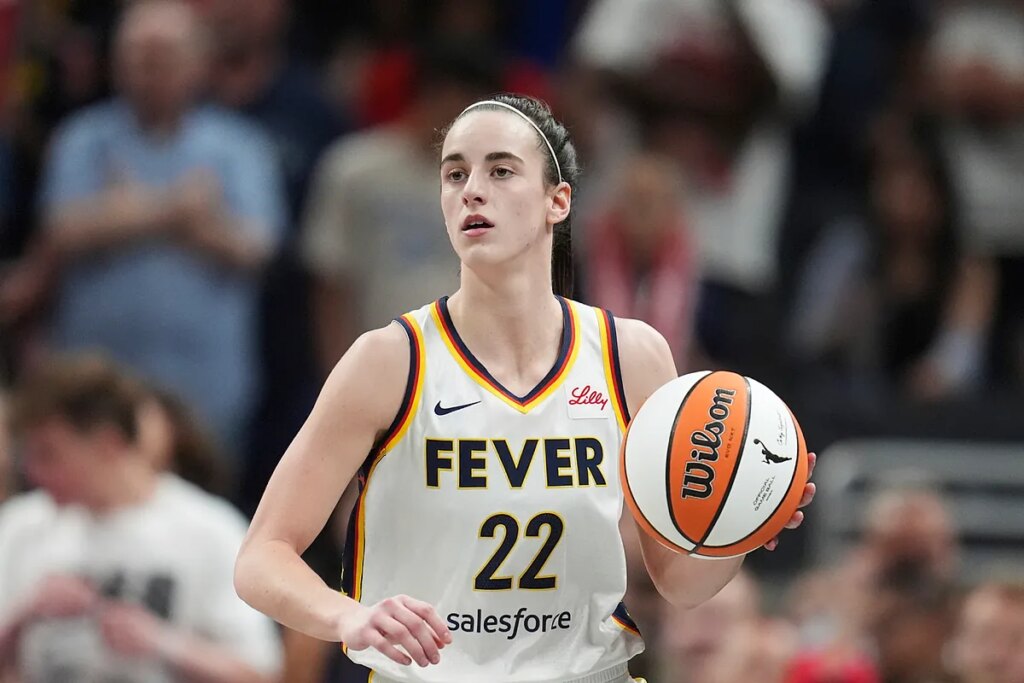With the WNBA season just around the corner and media attention on her at an all-time high, Caitlin Clark appeared on My Next Guest Needs No Introduction, the Netflix interview series hosted by David Letterman. And in classic Clark fashion, she didn’t shy away from nuance.
The conversation moved from her basketball upbringing to the growing popularity of the WNBA.
Acknowledging the past and honoring the present
That’s when the former Iowa Hawkeye echoed the same humility she expressed in Time, reiterating that her rise in the sport isn’t happening in a vacuum.
“I definitely have privilege. I’m obviously white, but I think I’m somebody who grew up a huge fan of this league,” Clark said during her sit-down with Letterman. “So I know where this league comes from: a lot of black women that grew up making this league what it is. And that’s kind of the shoulders that we stand on.”
Her words reinforce a perspective that’s both socially aware and deeply respectful – acknowledging that the WNBA‘s success today is built on decades of work, struggle, and sacrifice from black women athletes who helped shape the league’s culture and visibility.
“So I think that was something I’m very aware of, and something I’m very thankful for,” Clark added. “And they deserve all the credit, and the more we can give credit to them, the better. I’m very aware of that, and I know that, and I think there is responsibility in acknowledging that.”
Clark‘s comments are already generating buzz again, with many praising her for using her growing platform to amplify the voices of those who may have been overlooked in the past. It’s a message that resonates far beyond the court, speaking to themes of representation, history, and the importance of honoring legacies.
The 22-year-old phenom’s rise comes at a pivotal moment for women’s basketball. With TV ratings skyrocketing, merch flying off the shelves, and interest in the 2024 WNBA Draft hitting record levels, Clark is undeniably one of the sport’s key catalysts. But by continuing to speak on issues that reach beyond stats and accolades, she’s also setting a tone for what kind of leader she wants to be.
Read the full article here

